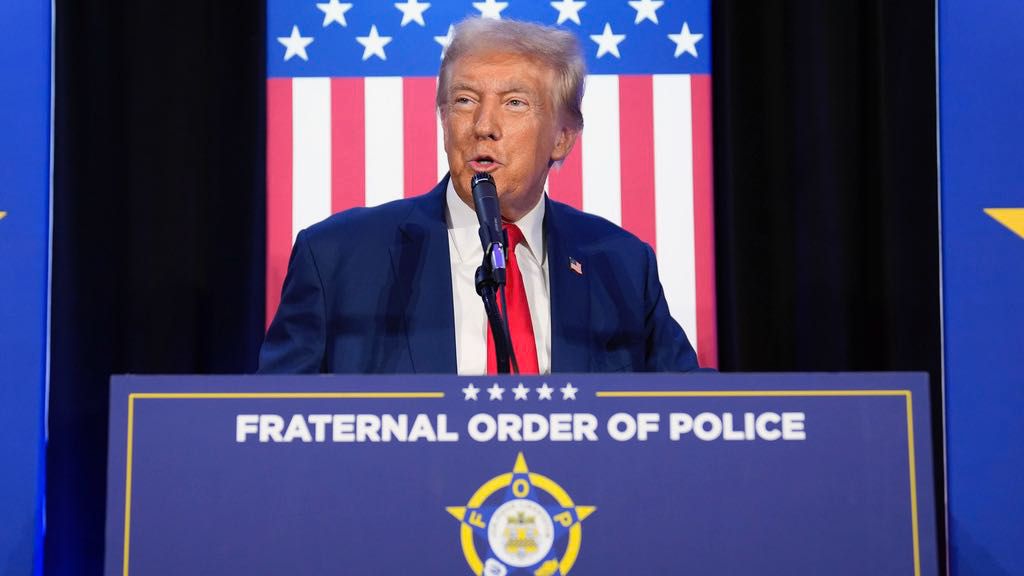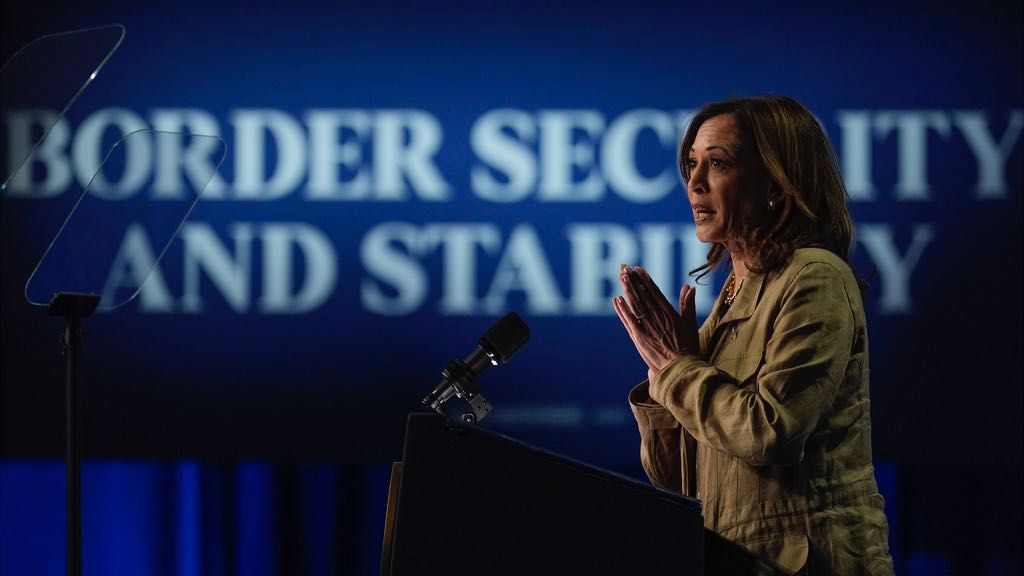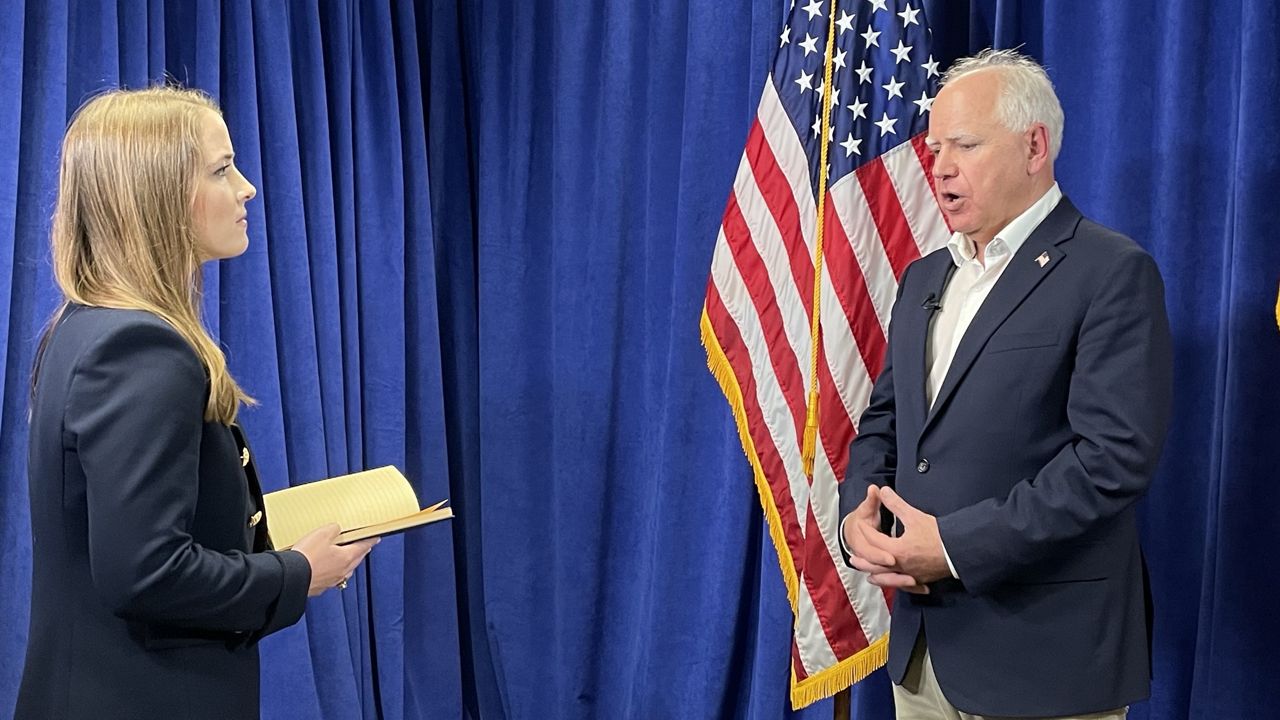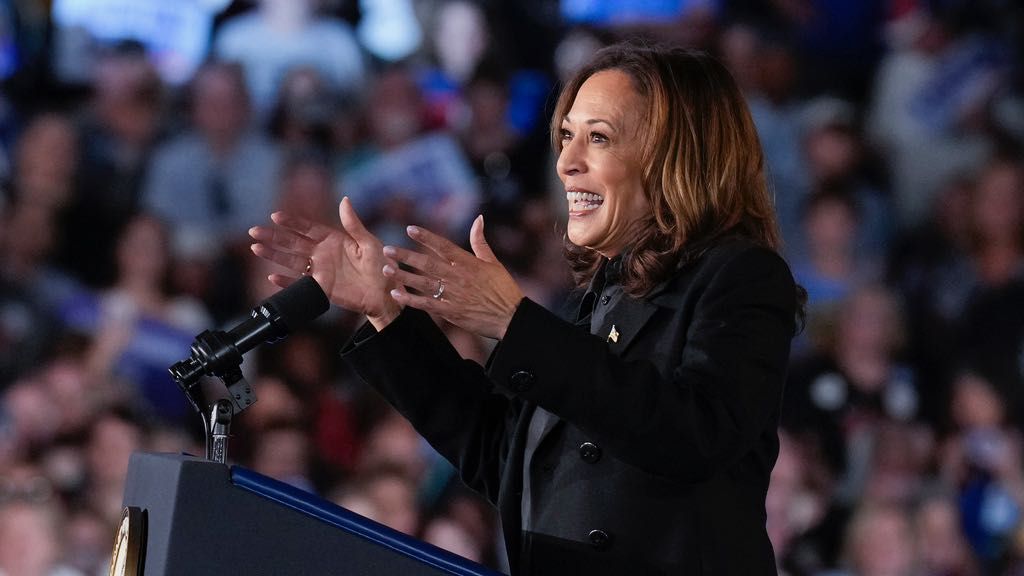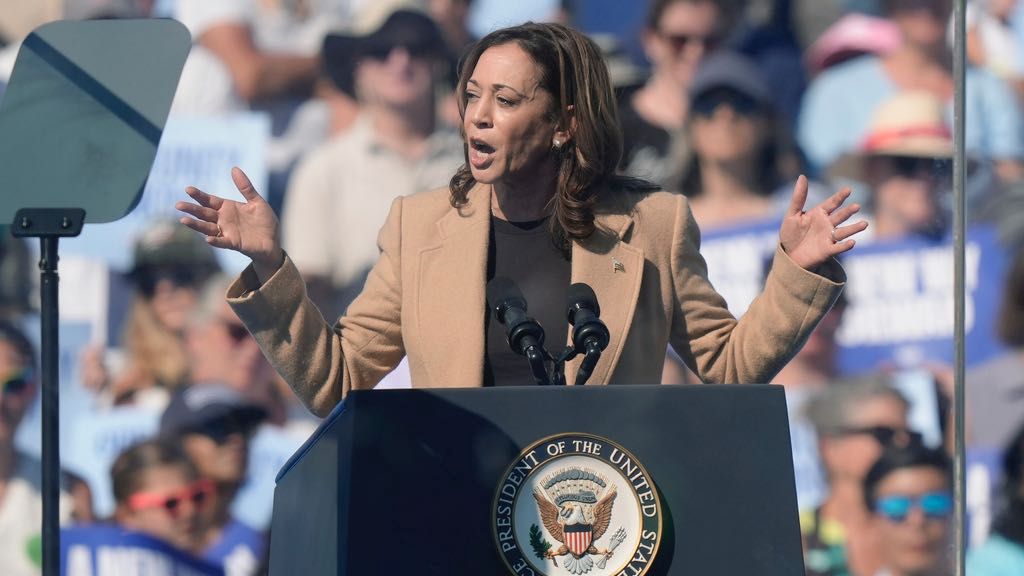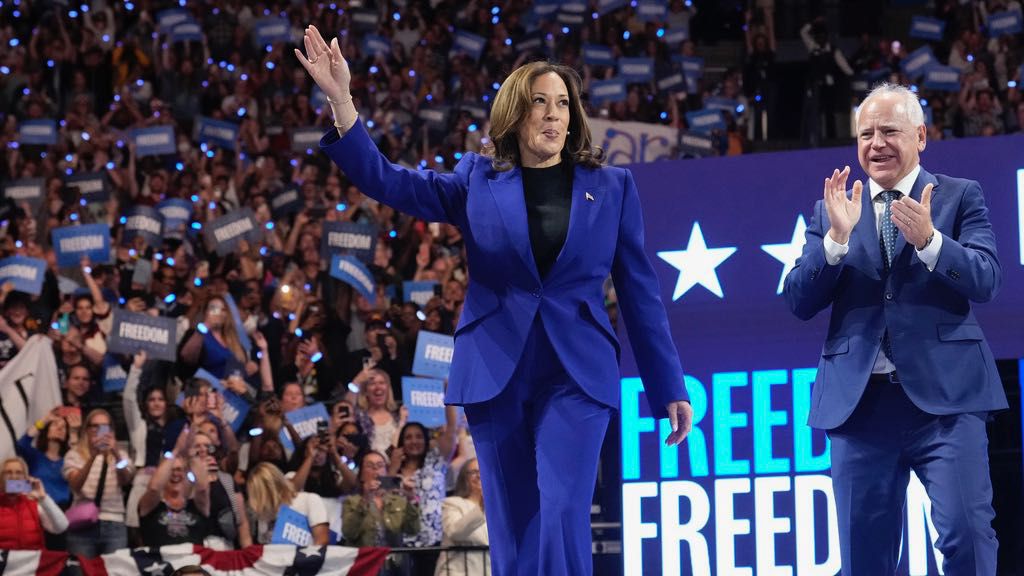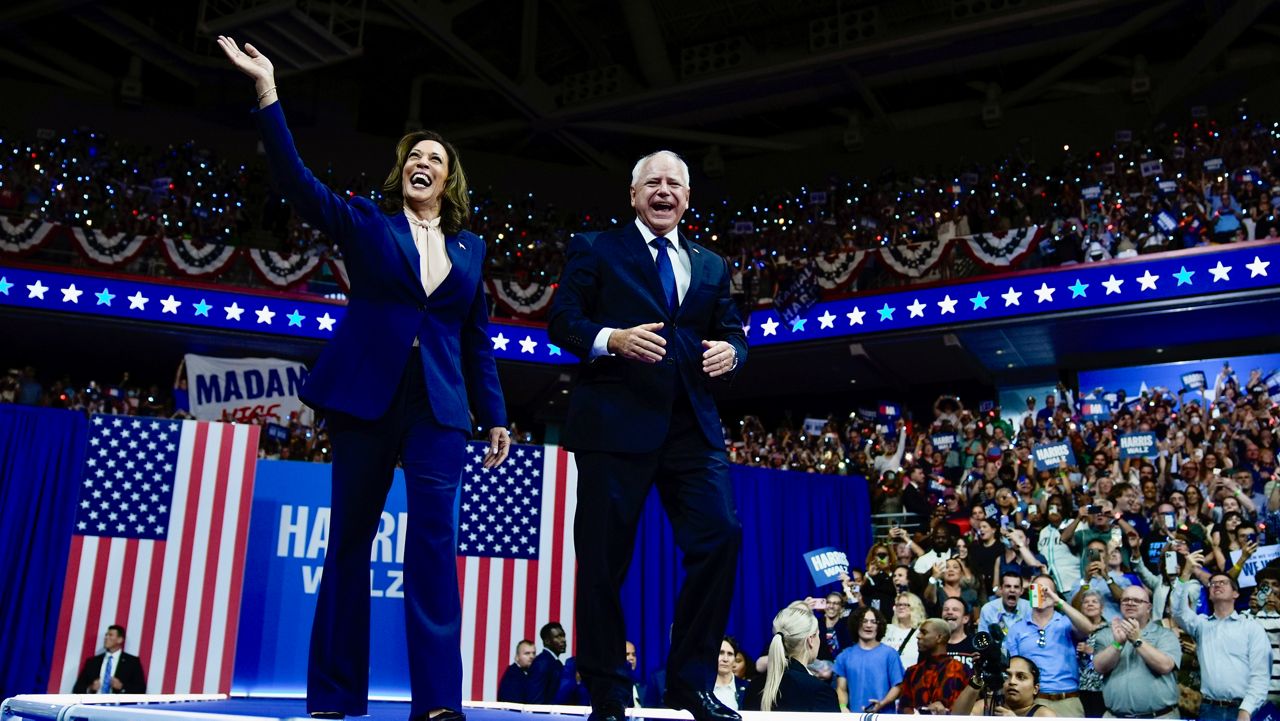Former President Donald Trump accepted an endorsement for president from a national organization of rank-and-file police officers Friday evening, hours after a New York court delayed sentencing in his conviction on 34 felony fraud counts. He also pledged to bring back “stop and frisk” policing, a policing strategy deemed unconstitutional.
“You don’t hear it, but I will tell you, it’s true to all of the law enforcement men and women here today. I respect you so much. I admire you and as your president, I will always back the blue as I did. I backed the blue more than any other person,” Trump said at a reception held by the Fraternal Order of Police, the largest membership group of rank-and-file law enforcement officers in the country.
In the same breath, he leveled a favorite line of attack against his Democratic opponent, Vice President Kamala Harris.
“I was not a defunder like Kamala. She was a defunder. She was a 10 year defunder. When you want to defund for 10 years, that’s the end of that one. I think I could leave right now and you say, there’s no way that we’re not voting for that guy,” Trump said, apparently accusing Harris of seeking to "defund the police," which he's lobbed at her previously. “That’s the ultimate, isn’t it?”
Harris, however, has not publicly advocated for defunding the police. Rather, she has called for “reimagining policing,” a phrase that often refers to review and reform use of force policies and policing tactics. The term has been used by the Obama Foundation, and the Obama Administration made policing a priority, through the President’s Task Force on 21st Century Policing.
In playing to the policing crowd, Trump insisted officers are “not allowed to do their jobs,” though he did not specify what that meant or how officers have been restricted from working. Whether they are or are not doing their jobs, the fact remains that case clearance rates — the rates at which cases are closed by police — have fallen since May 2020, the same month that George Floyd was murdered by a Minneapolis police officer.
“As we gather today, American cities, suburbs and towns are totally under siege. Kamala Harris and the communist left have unleashed a brutal plague of bloodshed, crime, chaos, misery and death upon our land,” Trump said.
However, federal crime data between 2012 and 2022 finds that violent crime rates have fallen from a recent high-water mark in the final year of Trump’s term in office. According to the FBI, the violent crimes rate in 2020 stood at 398.5 violent crimes per 100,000 people, before falling to 380.7 per 100,000 people in 2022, the most recent data set available. However, Trump dismissed federal crime data as “fake,” saying that “30% of jurisdictions are not reporting crime statistics” to the FBI.
Trump promised to “crack down on Marxist prosecutors” and return to “proven crime fighting methods, including stop-and-frisk and broken windows policing,” as instituted in New York under then-Mayor Rudy Giuliani, the long-time now-disgraced Trump ally. More than a decade ago, stop-and-frisk policing was deemed unconstitutional by a federal court, which found that the policy led to systemic racial profiling and violated the Fourth and Fourteenth Amendment rights of New Yorkers.
“But we’ll make our towns and cities safe again. We’ll make them clean and beautiful once again, and we’ll have places that you’ll live in the manner to which you’re supposed to be living, because people are living in hell right now,” Trump insisted.
The former president also again continued to reiterate of the 2020 election, insisting that “if we can keep the cheating to a minimum — because these people cheat, they cheat like hell — if we can keep it down to a minimum, we win easily,” and encouraging police officers to “watch for voter fraud, because we win without voter fraud.” There is no evidence that widespread voter fraud led to Trump losing the 2020 election — a point that Trump seemed to finally concede earlier this week, when he told podcaster Lex Fridman that he “lost by a whisker.”
Then, as he ran through a list of promises for acts he will take should he win the White House, Trump promised on his first day “to sign an executive order…making it the official policy of the U.S. government to completely eliminate the presidents of drug cartels and foreign gangs in the United States.”
Trump celebrates sentencing delay
Trump also celebrated the news that his sentencing in the New York hush money case was delayed until after the Nov. 5 presidential election. The reasoning, per Manhattan Judge Juan Merchan, was to “avoid any appearance — however unwarranted — that the proceeding has been affected by or seeks to affect the approaching presidential election in which the Defendant is a candidate.”
Trump, however, construed his own reasoning for the delay.
“The Manhattan DA witch hunt against me has been postponed because everyone realizes that there was no case because I did nothing wrong. It’s a witch hunt,” Trump said. “It’s an attack by my political opponents in Washington, DC and Comrade Kamala Harris and radical left opponents for purposes of election interference,” he continued, adding that “every legal scholar, expert and luminary — including people and highly respected people in this room…they all said it’s a case that is not a case, shouldn’t even be brought. Politics.”
While Trump has repeatedly publicly argued that the case should be “terminated,” his counsel has attempted to delay sentencing to avoid a “politically prejudicial” impact on the presidential election. “He attempts to bolster his application by repeating a litany of perceived and unsubstantiated grievances from previous filings that do not merit this court’s attention,” Merchan wrote in Friday’s decision letter.




